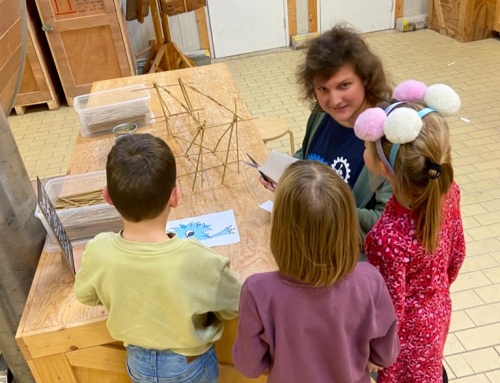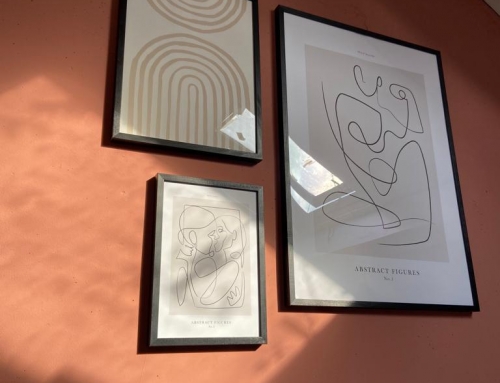In the previous blog, I wrote about the societal challenge that our public sector is facing. The struggle of working with a bureaucratic structure or working with a more adhocratic structure. This societal challenge is in line with the transition of society 2.0 towards society 3.0. I concluded that this is also the challenge Innovation Square is facing and that behavioural change is needed to deal with it. Furthermore, I wrote about the Coronavirus and the effects it has on our system world and lifeworld. In addition to this, this blog will be about these effects and what they mean for society. This blog is also about the societal challenge within different political structures.
System world and lifeworld
System world and lifeworld is a theory that comes back in every blog. It is always about the struggle what type of structure to use. Looking at all theories it looks like you have on the one hand, the bureaucratic structure, society 2.0, top-down and conversations as machines that represent system world. And on the other hand, an adhocratic structure, society 3.0, bottom-up and organisations as conversations that represent lifeworld. How this is written down, it looks very ‘black and white’, An organisation chooses A or B and there is nothing in between. However, our current society and a deeper understanding of the theories show that this is not the case. Society is constantly changing, there is no truth or false and for each organisation the needs and demands are different. Yes, there is a transition from society 2.0 to 3.0 but this does not mean that the structures we used in society 2.0 suddenly become irrelevant and useless. It is a process in which society has to find out what works and what does not work. This means that a mix of both ‘worlds’ is a solution and maybe reality. Look at for example to the political system of the Netherlands. They speak of ‘left and right’ but reality shows that it is always a mix of both. It is not just left or right anymore, we also have progressive and conservative and there is even more, socialism, liberalism, confessionalism, etc.
Structures in the world
Furthermore, it is interesting to look at countries where it is different. For example, the United States has two dominant political parties, democratic or republican. There are some smaller parties but in the end, it is always between the two dominant ones. There is no mix, it is or democratic or republican and after four years there is an opportunity to change. For example when Trump (republican) was elected for president, half of the US was satisfied and the other half disappointed (Wikipedia contributors, 2020a). Another example is People’s Republic of China, the power is divided between one political party, the army and the state. Because of censorship, the army and the state are in line with the political party and this party (Communist Party of China (CPC)) has absolute power because there are no free elections. The politic climate looks a lot like communism (Wikipedia contributors, 2020b).
Understanding the political systems of other countries, made me think about the societal challenge our public sector is facing. The challenge of choosing the right structure. I think that in countries like the Netherlands, this challenge is a hot topic and important but that this is less important in the United States and countries like China, it is not even a challenge at all because there is no room for discussion. Nevertheless, for the Netherlands, it is a challenge and Innovation Square has to deal with it. We can try to organise Innovation Square like China but as you can imagine this wouldn’t make sense. It is almost for sure that the participants of Innovation Square wouldn’t agree with it because they grew up in a structure that is organised differently. If you look at the liminal thinking theory of Dave Gray (blog 2) it is hard to act differently as we are used to according to our ‘bubble’ and self-sealing logic.

Nevertheless, this theory of Dave Gray also argues that someone’s beliefs are not the truth, it is the truth they created because of their pyramid. If you compare liminal thinking with the information written above, you can say that there are three bubbles. The bubble of the Netherlands, the bubble of the United States and the bubble of China. The people who live in the Netherlands and who act within this bubble, most likely believe that this is the truth and they do not agree with the bubbles of the United States and China. To test this, ask yourself the question ‘do you want to live in a country like China?’
The virus
Now it becomes interesting because in the previous blog I wrote that the system of the Netherlands is broken because of Corona. Before Corona, everything in the Netherlands was arranged and through rules and restrictions the system worked. Since Corona, those rules and restrictions do not make sense anymore because the consequences will be worse if we keep maintaining them. Look at for example the financial institutions, they help independent workers and other organisations that are affected because of Corona with financial support. Before Corona, this is something inconceivable. Giving money without interest?… But now this is reality and necessary because otherwise many organisations go bankrupt. Another interesting fact is about the decision making process of the government. For example, the government asked the schools and universities to stay open and they disagreed. They all closed their doors and the government was not able to do something about it, it was determined democratically (Volkskrant, 2020).
We in the Netherlands believe that this is the best way to deal with Corona but in the United States and China, they react differently. Again we react how we constructed our bubble and again we cannot say what is good and what is wrong. Besides this good and wrong, I believe it is interesting to see where we can learn from each other. What can we learn from China to beat Corona? China has a positive development and in the Netherlands, it is still negative. I know that China suffers from Corona for a longer period as the Netherlands but still, they are doing good and that is something the Netherlands also wants. Furthermore, there are countries angry with the Netherlands because they do not agree with how we approach Corona. They approach it different (their bubble) and do not understand our approach (our bubble).
Understanding the truth
Maybe, I glorify the situation, I know that it is not that simple and easy. Even though, I believe this is the way to go. If we want to improve and change current society, we need to stay open to other perspectives. This starts by understanding our perspective, why do we act like this and why are we facing the societal challenge of struggling between system world and lifeworld? We have to understand that our truth is not the truth and that there are other opportunities. This again asks for a behavioural change. That starts with understanding our mental models and deconstructing our pyramid and after understanding our own we need to understand the others.
This is not something we can do in a day, week, month or year. This is a process and costs time, we do not know what the outcome will be and in a year everything will be different again. I think Innovation Square has to follow the same process. Together, they have to find out what the way to go is. There are different methods, theories and tools to find this out and that will also be the topic of my next blog. I will write about formalized experimental environments and I am going to search for more examples like this, where they search for a different way of working, organising and structuring. I also want to find out, what I can do as a professional to facilitate this process.





